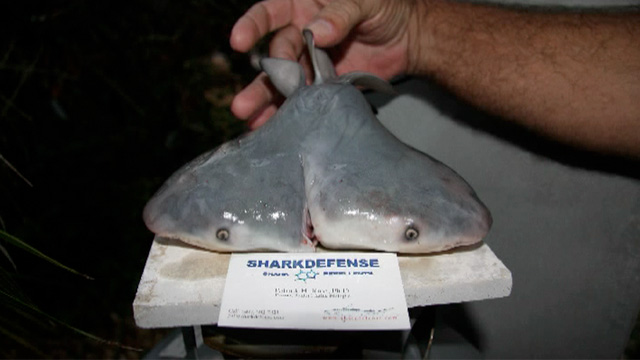Scientists have confirmed the discovery of a two-headed shark in the Gulf of Mexico.
The bull shark was found back in April 2011 when a fisherman cut into the uterus of an adult shark and discovered the two-headed offspring. Since the initial find, scientists have been analysing the creature and can now say for sure that it is a single shark with two heads, rather than conjoined twins.
MRIs were used by Professor Michael Wagner, Michigan State University’s assistant professor of fisheries and wildlife, and his team to reveal that the animal had two distinct heads, hearts and stomachs, while the rest of its body joined together again and formed a single tail at the back.
Prof Wagner commented on the find: “This is certainly one of those interesting and rarely detected phenomena. It’s good that we have this documented as part of the world’s natural history.”
He added that it is widely thought that similar animals die before being born, but that in other species they are often able to survive birth.
“You’ll see many more cases of two-headed lizards and snakes,” he remarked. “That’s because those organisms are often bred in captivity, and the breeders are more likely to observe the anomalies.”
The fisherman who found the creature originally brought it to the marine science department at Florida Keys Community College before it was taken to the Michigan University to receive more in-depth study.


